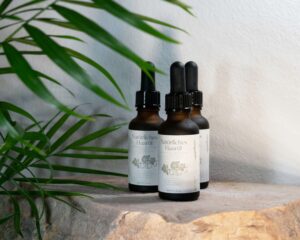All About Hair Oils

In the realm of hair care, one treasure that has stood the test of time is the use of hair oils. From ancient civilizations to modern beauty routines, hair oils have been revered for their nourishing and transformative properties. Choosing the right hair oil can be a game-changer for your locks, addressing specific concerns and promoting overall hair health. In this comprehensive guide, we’ll delve into the world of hair oils, helping you navigate through the myriad options to find the perfect elixir for your hair type.
Understanding Hair Oils
Hair oils have been cherished across cultures for centuries, each boasting unique benefits for various hair types. These oils are derived from plants, seeds, and nuts, and they work wonders by providing essential nutrients, moisture, and protection to your hair. They can be categorized into three main types: carrier oils, essential oils, and blended oils.
- Carrier Oils:
Carrier oils, often referred to as base oils, form the foundation of most hair oil formulations. These oils are rich in fatty acids, vitamins, and antioxidants, making them excellent for moisturizing and nourishing the hair. Some popular carrier oils include coconut oil, argan oil, jojoba oil, and olive oil.
Coconut Oil: Known for its ability to penetrate the hair shaft, coconut oil is ideal for dry and damaged hair. It helps strengthen the hair, reduce protein loss, and impart a lustrous shine.
Argan Oil: Hailing from the argan tree in Morocco, argan oil is a lightweight and non-greasy option. It’s packed with vitamin E and essential fatty acids, making it suitable for frizzy and brittle hair. Argan oil also adds a silky smooth texture to your locks.
Jojoba Oil: Similar in composition to the natural oils produced by the scalp, jojoba oil is easily absorbed, making it a great choice for balancing oil production. It’s suitable for all hair types, promoting a healthy scalp and adding shine without weighing down the hair.
Olive Oil: A kitchen staple with impressive beauty benefits, olive oil is rich in antioxidants and moisturizing properties. It’s particularly effective in taming frizz and adding hydration to dry hair.
- Essential Oils:
Essential oils are concentrated extracts derived from plants and flowers, known for their aromatic and therapeutic properties. When used in hair care, they can address specific concerns such as dandruff, hair loss, and scalp health. Some popular essential oils for hair include lavender oil, tea tree oil, rosemary oil, and peppermint oil.
Lavender Oil: Renowned for its calming scent, lavender oil also promotes hair growth and soothes an irritated scalp. It’s a great addition to your hair oil blend for an extra touch of relaxation.
Tea Tree Oil: With its antifungal and antibacterial properties, tea tree oil is excellent for combating dandruff and promoting a healthy scalp. It’s advisable to use tea tree oil in small quantities, as it can be potent.
Rosemary Oil: Known to stimulate hair follicles and improve circulation, rosemary oil is a fantastic choice for those looking to enhance hair thickness and prevent hair loss.
Peppermint Oil: The cooling sensation of peppermint oil not only invigorates the scalp but also helps regulate oil production. It’s a refreshing addition to your hair oil routine, especially for those with oily or itchy scalps.
- Blended Oils:
Blended oils combine the benefits of various carrier and essential oils, offering a comprehensive solution for specific hair concerns. These formulations are often crafted to address multiple needs, such as hydration, repair, and shine. Look for blends that cater to your hair type and concerns, ensuring a well-rounded approach to hair care.
Choosing the Right Hair Oil for Your Hair Type
Now that we’ve explored the diverse world of hair oils, let’s dive into choosing the right one for your specific hair type.
- Dry and Damaged Hair:
If your hair is prone to dryness and damage, opt for nourishing and moisturizing oils such as coconut oil, argan oil, and olive oil. These oils penetrate the hair shaft, providing deep hydration and repairing damaged strands. Consider using a blended oil that combines the richness of these carrier oils with the rejuvenating properties of essential oils like lavender and rosemary.
- Frizzy and Unmanageable Hair:
For frizzy and unmanageable hair, lightweight oils like argan oil and jojoba oil are your best allies. These oils tame frizz, add shine, and leave your hair feeling silky smooth. Look for blends that include these oils along with essential oils like lavender and peppermint for a perfect combination of control and nourishment.
- Oily Scalp and Hair:
If you have an oily scalp and hair, it might seem counterintuitive to use hair oils. However, certain oils like jojoba oil can help balance oil production. Opt for blends with jojoba oil, tea tree oil, and peppermint oil to regulate sebum production, keeping your scalp healthy without causing excess oiliness.
- Thin or Limp Hair:
To add volume and thickness to thin or limp hair, choose lightweight oils like jojoba and argan oil. Additionally, incorporate essential oils such as rosemary and peppermint to stimulate hair follicles and promote growth. A blended oil specifically designed for thin hair can offer a holistic solution, addressing both volume and nourishment.

In the vast landscape of hair care, the use of hair oils remains a timeless and effective tradition. Choosing the right hair oil for your specific needs can transform your hair care routine, promoting health, shine, and manageability. Whether you have dry, frizzy, oily, or thin hair, there’s a perfect oil or blend waiting to rejuvenate your locks. Experiment with different combinations, and treat your hair to the luxurious benefits of these natural elixirs. With the right hair oil, you can unlock the secret to luscious, radiant locks that turn heads wherever you go.

